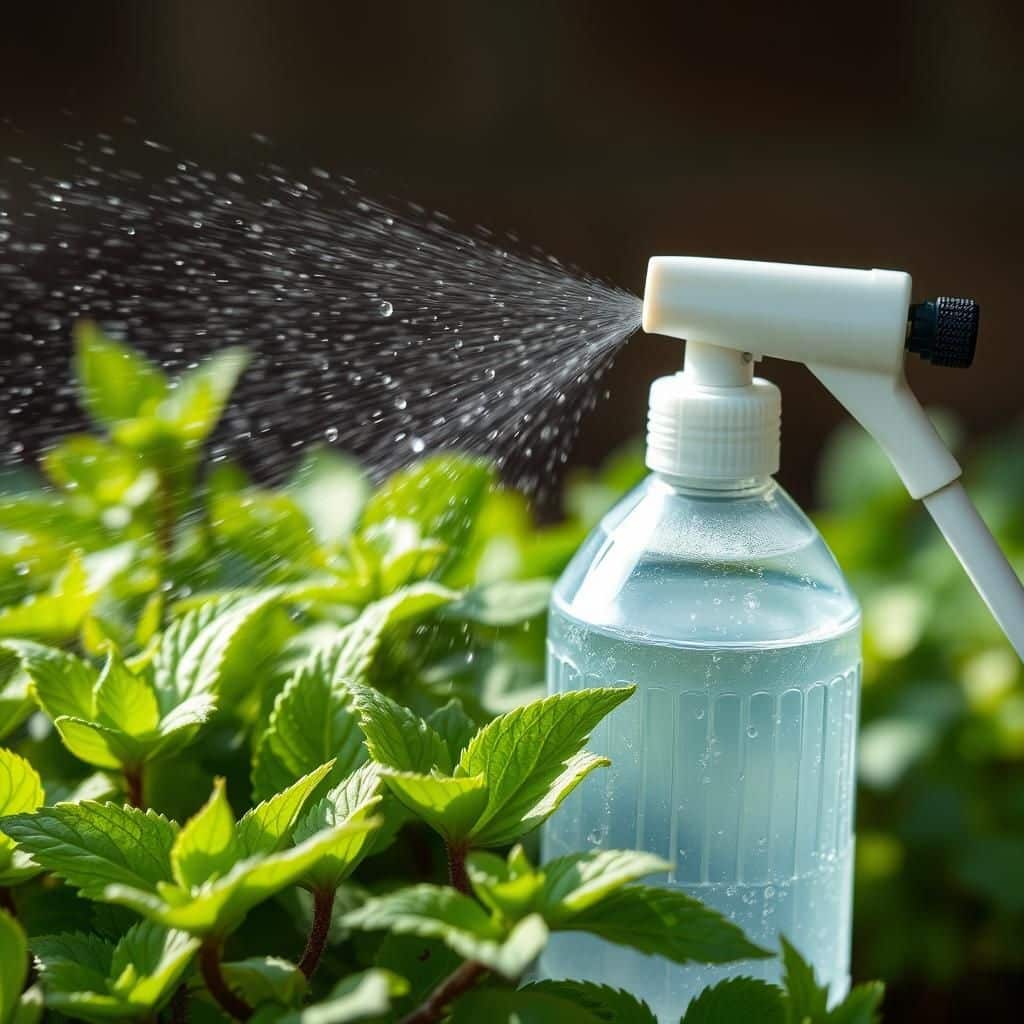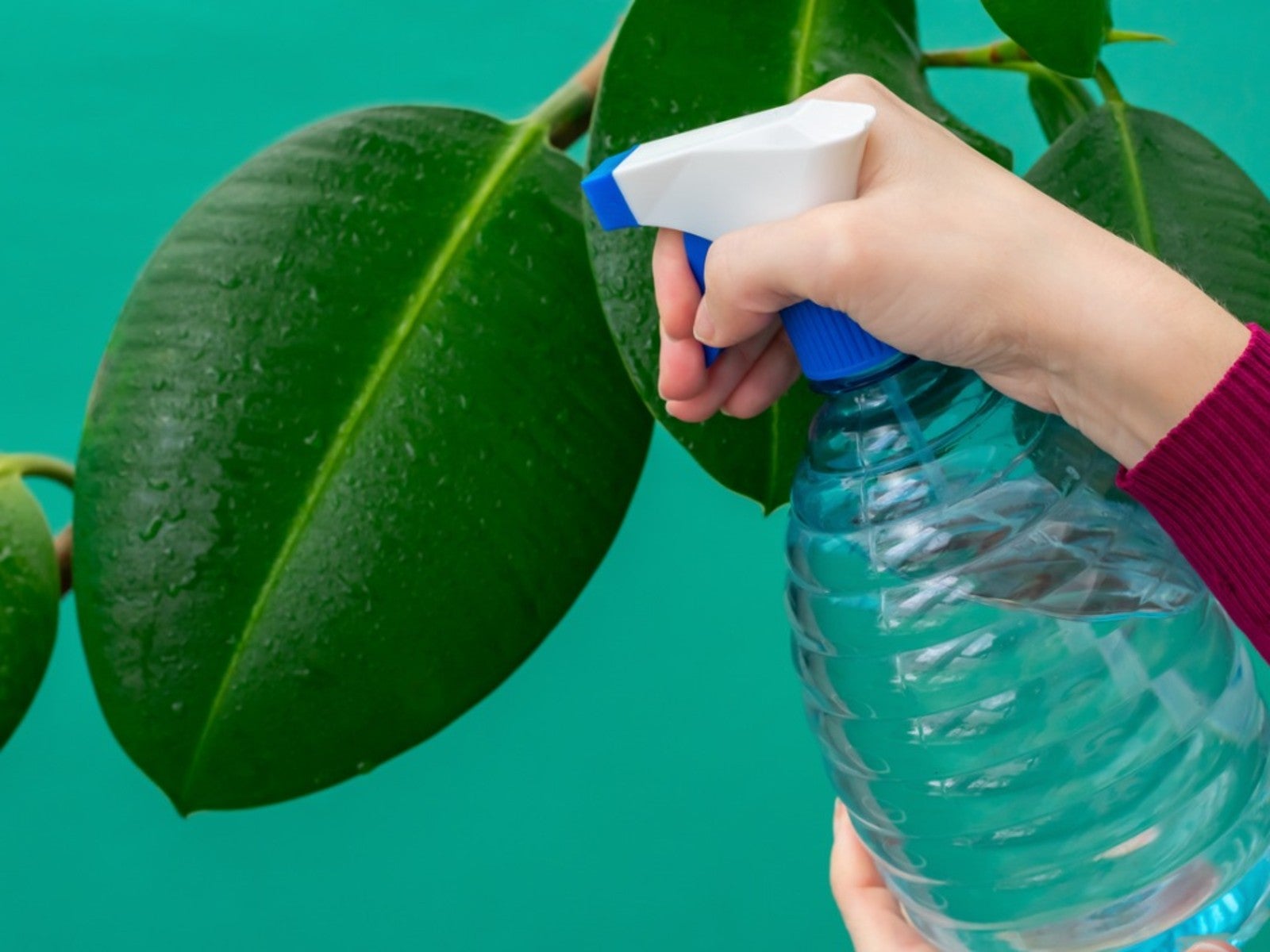Can I Spray My Plants with Soapy Water? Benefits, Risks, and Tips for Effective Use

Using soapy water as a pest control solution for plants has gained popularity among gardeners seeking natural remedies. While it can effectively combat a variety of pests, including aphids and spider mites, it's essential to understand both its benefits and potential risks. This article explores whether spraying your plants with soapy water is a viable option, examining its advantages, possible drawbacks, and tips for effective application. By the end, you'll be equipped with the knowledge needed to make informed decisions about using soapy water in your gardening routine to promote healthy, thriving plants.
Can I Spray My Plants with Soapy Water?
Yes, you can spray your plants with soapy water, and it is often used as a natural insecticide to help control pests like aphids, spider mites, and whiteflies. The soap works by suffocating the pests and disrupting their cell membranes, which ultimately leads to their death. It is important to use mild, non-toxic soaps such as castile soap or liquid dish soap that do not contain additives or fragrances, as these can harm the plants. Always test a small area of the plant before applying it broadly to ensure that it does not cause any adverse reactions. Diluting the soap with water at a ratio of 1-2 tablespoons of soap per gallon of water is commonly recommended for effective results while minimizing potential plant damage.
How Does Soapy Water Affect Pests?
Soapy water affects pests by disrupting their protective outer layers, leading to dehydration and death. The surfactants in soap reduce the surface tension of water, allowing it to penetrate the pests' bodies more effectively. When sprayed directly, the solution clogs their breathing pores and prevents them from respiring, which is often fatal. This method is seen as a more environmentally friendly way of dealing with pest infestations compared to synthetic pesticides.
What Type of Soap Should I Use?
When choosing soap for your plants, it's best to opt for mild, biodegradable soaps. Liquid castile soap is a popular choice because it is derived from natural ingredients and safe for plants. Avoid soaps that contain additives or fragrances, as these can be harmful to your plants. Always ensure that you are using a soap that does not contain antibacterial properties, as these can disrupt the beneficial microorganisms in the soil.
How to Prepare Soapy Water for Spraying?
To prepare soapy water for spraying your plants, mix 1-2 tablespoons of mild liquid soap with 1 gallon of water in a spray bottle or a garden sprayer. Make sure to thoroughly mix the solution to ensure that the soap is evenly distributed. Before applying it to all your plants, conduct a patch test by spraying a small area of the plant first and waiting 24 hours to observe any adverse effects. If the plant shows no signs of stress, you can proceed to spray the entire plant.
When Should I Use Soapy Water on My Plants?
Using soapy water is most effective during the early stages of pest infestations. It is advisable to spray your plants in the morning or late afternoon to avoid heat stress and prevent the soap from evaporating too quickly. Reapply the solution every few days until you notice a significant reduction in pest activity. Additionally, consider using this method preventively during pest-prone seasons to help keep infestations at bay.
Are There Any Risks Involved?
While spraying plants with soapy water is generally safe and effective, certain risks exist. Prolonged exposure can lead to leaf burn, especially in hot, sunny conditions, as the soap can magnify sunlight. Always avoid spraying on flowers and delicate foliage to prevent damage. Additionally, overuse could lead to a build-up of soap residue, which may harm beneficial insects and disrupt the ecosystem around your plants.
| Aspect | Details |
|---|---|
| Effective Against | Aphids, spider mites, whiteflies |
| Soap Type | Mild, biodegradable soap |
| Preparation Ratio | 1-2 tablespoons soap per gallon of water |
| Application Timing | Mornings or late afternoons |
| Potential Risks | Leaf burn, pesticide resistance, harming beneficial insects |
Is soapy water safe to spray on plants?


Soapy water can be used as a natural pesticide for certain pest problems on plants. However, it is essential to understand which types of soap to use, the concentration of the solution, and its potential effects on the plants themselves. Generally, a mixture of water and dish soap, when used correctly, is considered safe for most houseplants and garden plants. Nevertheless, it is crucial to test a small area of the plant first before application, as some plants may be more sensitive to oils and additives in commercial soaps.
What Types of Soap are Safe for Plants?
When considering the use of soapy water on plants, the choice of soap is crucial. Not all soaps are suitable, as some contain harmful ingredients.
- Castile soap: This is a plant-based soap that is biodegradable and typically safe for most plants when diluted properly.
- Pure liquid soap: This should be free from additives, fragrances, and preservatives, which could harm plants.
- Avoid detergents: Regular household laundry detergents and dish soaps often contain chemicals that can be detrimental to plants.
How to Make Soapy Water for Plants?
Creating a safe and effective soapy water solution requires proper measurement and mixing.
- Start with one tablespoon of liquid soap for every one quart of water.
- Mix the solution thoroughly to ensure even distribution of the soap in the water.
- Use a spray bottle or garden sprayer for easy application on affected plants.
What Pests Does Soapy Water Help Eliminate?
Soapy water is effective against a variety of common garden pests.
- Aphids: Small sap-sucking insects that can quickly infest plants.
- Spider mites: Tiny pests that can be hard to spot but cause significant damage.
- Whiteflies: These can transmit diseases and weaken plants through their feeding habits.
Potential Risks of Using Soapy Water on Plants
While soapy water can be beneficial, there are some risks to consider.
- Leaf burn: Some plants may react negatively if the soapy solution is too strong or if it remains on the leaves for an extended time.
- Sensitivity: Certain delicate plants like ferns may be sensitive to soaps, so testing is essential.
- Beneficial insects: Soapy water may also affect beneficial insects; avoid spraying during flowering periods when bees are active.
When to Apply Soapy Water on Plants?
Timing is important for effective treatment with soapy water.
- Early morning or late afternoon: This helps minimize the risk of sunlight causing leaf burn.
- Apply during dry weather: Rain can wash away the solution before it has time to work.
- Repeat every few days: Reapplication may be necessary to fully eliminate persistent pests.
Does soapy water affect plant growth?

Soapy water can have varying effects on plant growth, depending on the concentration of soap, the type of soap used, and the plant species being treated. Generally, soapy water is often utilized in gardening for its insecticidal properties, helping to eliminate pests like aphids and spider mites. However, it is essential to consider how it may impact plant growth directly.
See also:
Impact of Soap Concentration
The concentration of soap in the water solution plays a crucial role in determining its effects on plants.
- Low Concentration: Diluted soapy water (about 2% soap solution) can be safe for most plants, functioning as an insecticide without harming plant tissues.
- High Concentration: A high concentration of soap can lead to phytotoxicity, causing leaf burn and root damage.
- Balance: It's essential to find the right balance to minimize negative effects while effectively managing pests.
Type of Soap Used
The type of soap in question significantly influences the outcome for plants.
- Commercial Insecticidal Soaps: These are formulated specifically for use on plants and are generally safe, given that they are used according to the guidelines.
- Household Soaps: Many common household soaps contain additives or fragrances that can be harmful to plants.
- Natural Soaps: Soaps derived from plant oils, such as castile soap, are often gentler and more suitable for plant use.
Plants' Sensitivity to Soapy Water
Different plant species exhibit varying levels of sensitivity to soapy water.
- Hardy Plants: Species like marigolds and zinnias tend to tolerate soapy water applications quite well.
- Delicate Plants: Sensitive plants, such as ferns or some succulents, may suffer from even diluted soapy solutions.
- Pre-Testing: It’s advisable to test on a small area or a single leaf before broader application to monitor for adverse reactions.
Effects on Soil Microorganisms
Soapy water can also influence the soil microorganisms that play critical roles in plant health.
- Beneficial Microbes: High soap concentrations can disrupt beneficial microbial communities essential for nutrient cycling.
- Soil Health: The long-term use of soapy water may lead to changes in soil pH and overall soil health.
- Microbial Activity: Reduced microbial activity can adversely affect plant growth and nutrient uptake.
Watering Practices with Soapy Water
Proper watering practices can help mitigate any potential negative effects of using soapy water.
- Application Timing: Watering with soapy water should be done in the evening or early morning to reduce evaporation and leaf burn.
- Washing Off Residue: After applying soapy water, it’s beneficial to rinse the plants with clean water to reduce soap residue.
- Frequency of Use: Limiting the frequency of applying soapy water can help safeguard against damaging the plants and soil.
Questions from Our Readers
Can I spray my plants with soapy water?
Yes, you can spray your plants with soapy water, as it can help control pests like aphids and spider mites. When using soapy water, it is essential to ensure that the soap is mild and does not contain any additives, as these can harm the plants.
What type of soap should I use for my plants?
For your plants, it is best to use pure liquid soap or insecticidal soap that does not contain fragrances, dyes, or degreasers. These types of soap are less likely to harm the foliage while effectively controlling pests.
How do I prepare soapy water for spraying?
To prepare soapy water, mix approximately 1 to 2 tablespoons of mild liquid soap with a quart of water in a spray bottle. Make sure to shake the mixture well before spraying, which helps emulsify the soap in the water.
See also:
How often can I spray my plants with soapy water?
You can spray your plants with soapy water every 7 to 10 days as needed, particularly during the pest season. However, it is advisable to test a small area of the plant first to ensure that there is no adverse reaction.

If you want to read more articles like Can I Spray My Plants with Soapy Water? Benefits, Risks, and Tips for Effective Use, we recommend you check out our Plants category.
Leave a Reply
Related Articles